Four years ago, we held our first seminar at Teen Challenge in Kampala, Uganda—where we led about eight students and a few staff through New Man, New Woman, New Life. We’ve continued to lead NMNW and a Master Class since then. Last month, we returned yet again and this time had about 25 students and seven staff members. The training was led by Africa Program Director Frank Tweheyo and Empower Uganda President Joyce Ouko, and her husband Julius.
Here is his report, edited for length and clarity.
Empower work keeps getting more interesting! I enjoyed teaming up with Joyce and Julius Ouko.
The Oukos are great fun to work with especially when dealing with such people recovering from addictions. Their experience working as pastors of churches in slum areas in Kampala is relevant and highly invaluable in such trainings.
These young men and a few married men were very engaging, some being university graduates, university dropouts and some having failed in the workplace because of addictions. Working with them was highly rewarding.
Here are a few highlights of what participants learned from the training:
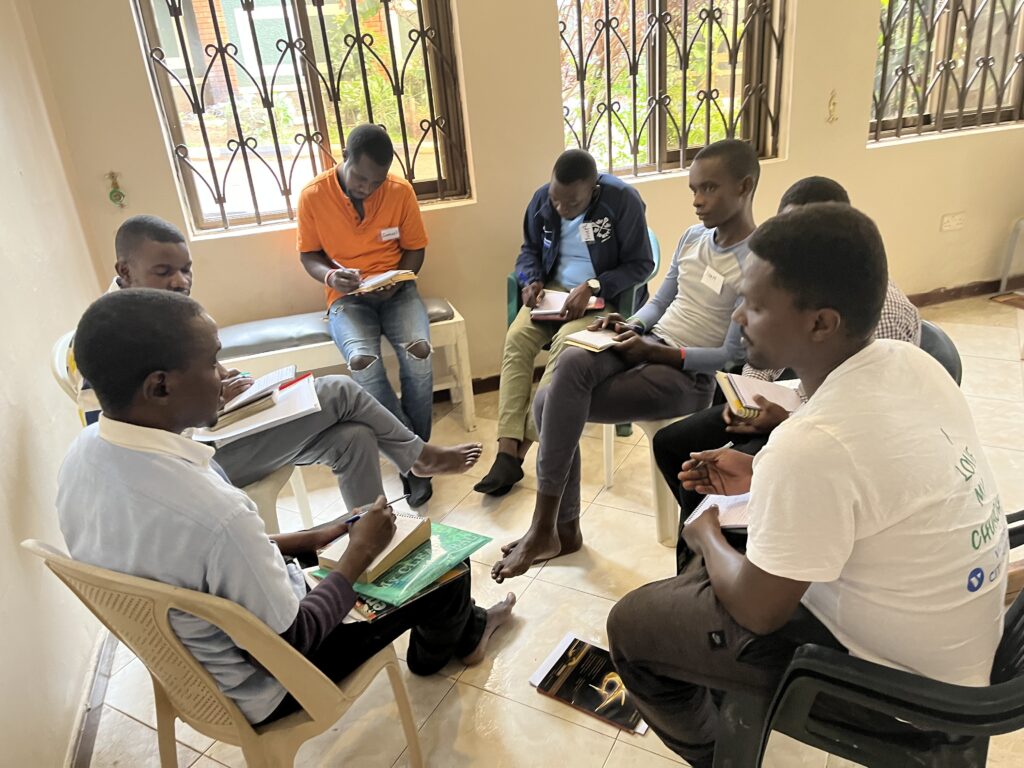
Kinobe Muhammad, a recent convert from Islam, learned to respect women. He now understands that they are equal to men. He learned to work hand in hand with the women. “When you kneel together, you come up together in strength,” he said. His background in Islam had diminished the status of women but now he knows better.
Frank Nkurunziza said he corrected his prior misconception that man and woman were cursed along with the serpent and the ground. He now knows that man and woman were created in the image of God and therefore not cursed. He said he is going to do a deeper personal study so as to be equipped to teach this truth to people when he finishes his time at Teen Challenge.
Samuel Akankwasa, after coming to understand that God made woman an “Ezer Kenegdo,” a strong helper, said he recommends putting women onto leadership positions at all levels. Understanding the woman as a strong help has helped him to appreciate what huge contribution women would bring in the family and community if people understood this truth.
Herbert, while commenting on the burdens of women, asked himself why those responsible to teach others didn’t know the creation ideal. If they taught things in their proper perspective, we would be living in a better society.
Charles was surprised to know that children are not a commandment but a blessing. He learned that not having children doesn’t mean a woman or marriage is cursed. He learned that marriage is still blessed even when children are not yet in the equation. He also came to understand that a real man is not born in culture but in redemption, and that he is equal to his wife, and has to treat her not with authority but with love and mutual submission.
I loved the way this group grasped issues like ‘ezer kenegdo, issues concerning the fall, and how Paul deals with submission, headship and the mystery of marriage.
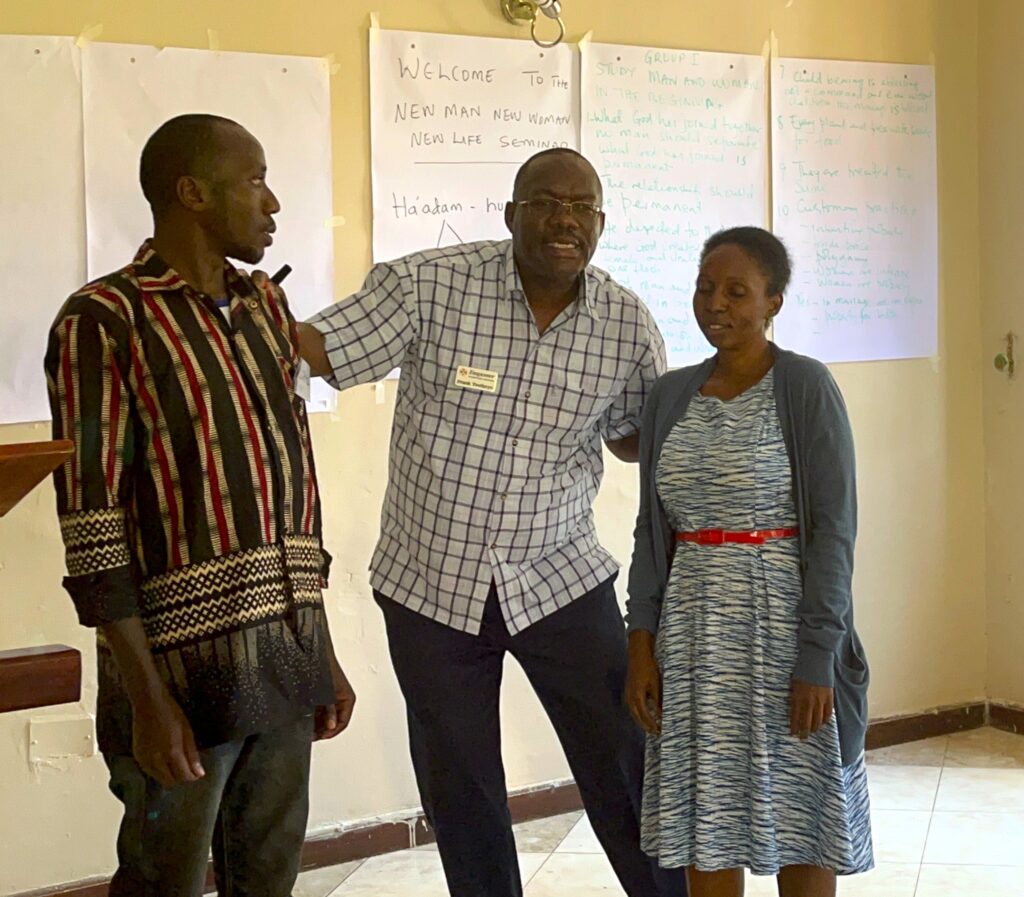
Angel Raphael grasped the right concept of marriage. He gave us a story of how people who don’t understand God’s ideal of marriage will always distort the Bible. He knew of a pastor who married a second wife and said the first wife was like an animal (referring to when Adam first looked for a companion in animals and did not find) but that the second wife was like Eve! Angel loved the fact that Genesis, Jesus, and Paul all give us the same illustration of saying “what God has joined let no man put asunder.” He also learned how opening oneself to Christ’s redemptive purpose will help you escape to the cultural and patriarchal prison.
Shafiq, another Muslim turned Christian, using the scripture in Ecclesiastes 4:9, said two are better than one, especially if the helper is stronger not weaker (as culture purports a helper to be weaker). Furthermore using Gal. 6:10, he said that husbands should give accountability to their wives.
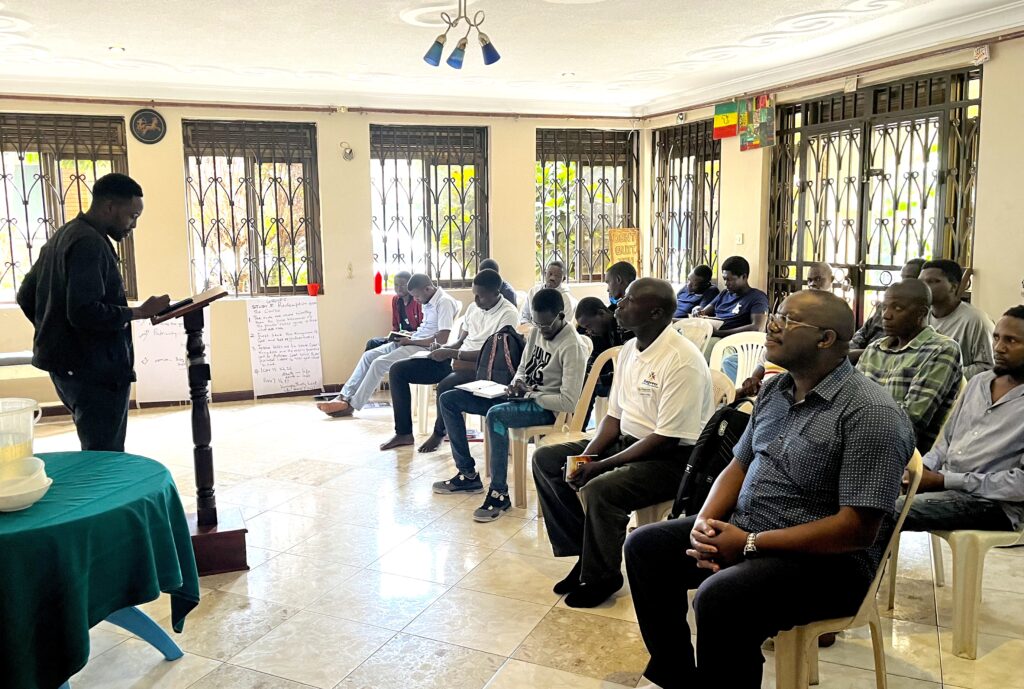
We had an exciting argument concerning how Jesus told men not to lust after women. Some were saying it is women who lust after men just as much. It was agreed that in Jesus’ day, women had no power culturally to show their lustful feelings to men, so Jesus had to talk to the men. Today, Jesus speaks to both men and women, telling them to stop lusting after each other.
The world would indeed be a better place if we stopped lusting after each other, struggling for power and looking at women as sex objects.
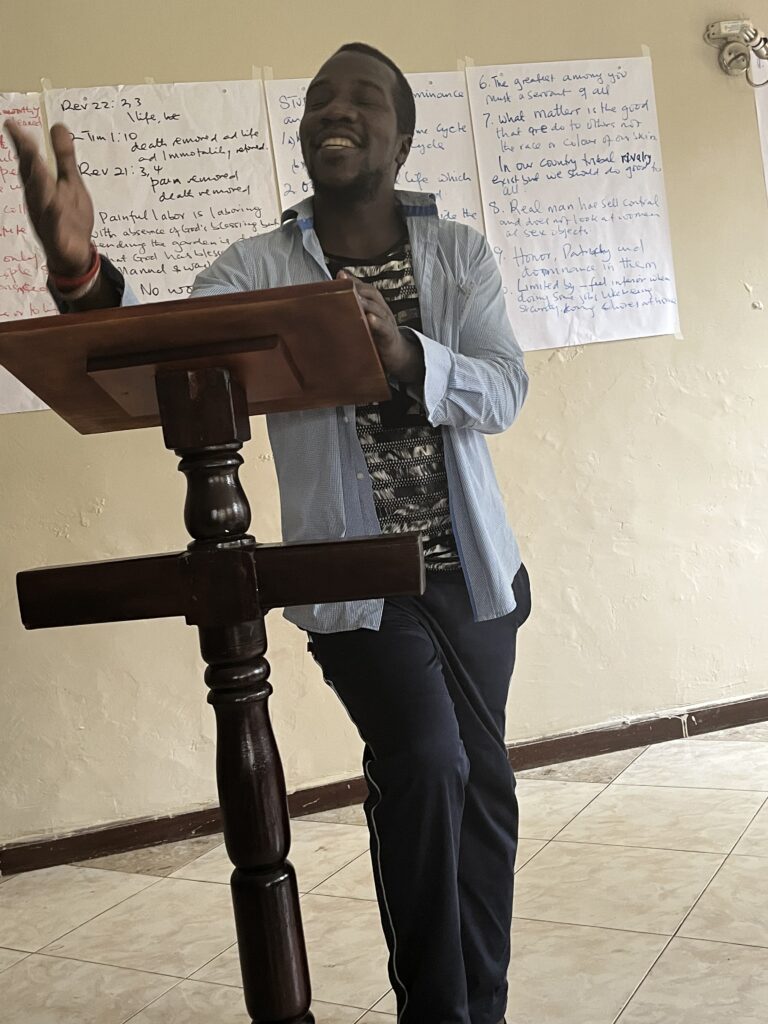
Most of the participants appreciated the clear explanations on patriarchy and how it is redeemed in Christ, with Him being the greatest example by washing the disciples’ feet. (Study 7, John 13).
Sam said that he learned God is our ‘ezer (helping us out of every trouble), that men need to treat their wives the same way. He also liked the fact that Mary was freed to sit at the feet of Jesus, and we need to free each other to serve God faithfully.
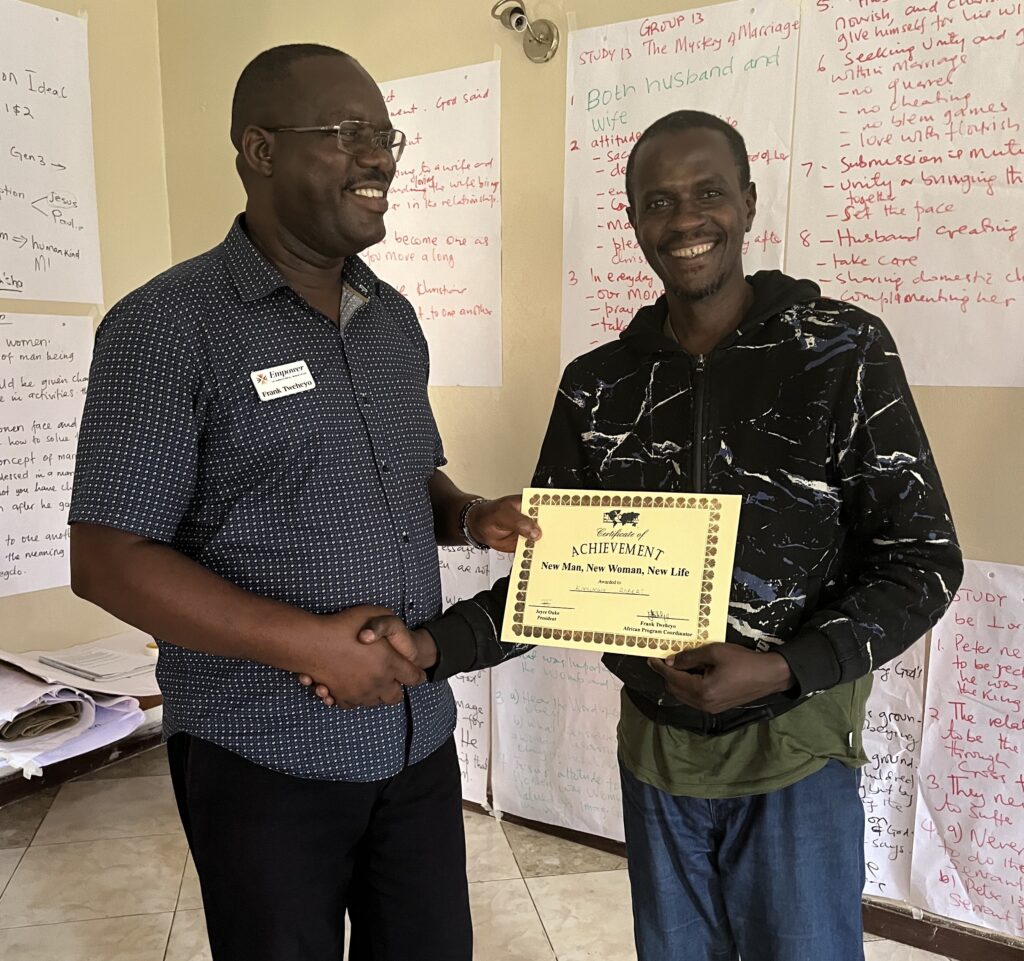
In the last session before we gave certificates, Ngobi Hussein, who was in the 2019 class at Teen Challenge Kampala, graduated and is now a student at Isbat University, visited the class. He was a Muslim who gave his life at Teen Challenge Kampala. He said that the NMNWNL seminar then really transformed his life and gave him a new outlook on life. He is now back to school looking forward to serving God as a New Man!
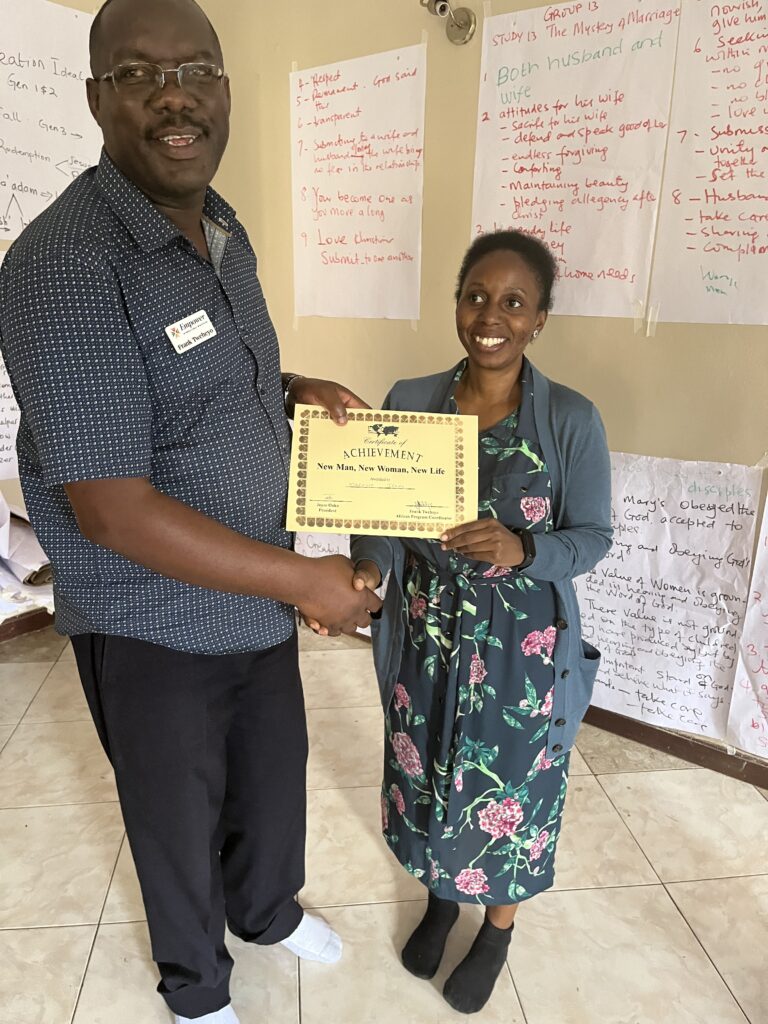
This is what keeps Empower moving. Such people like Hussein are a great inspiration. Thanks to all who support Empower to help us realize such transformative results!!
